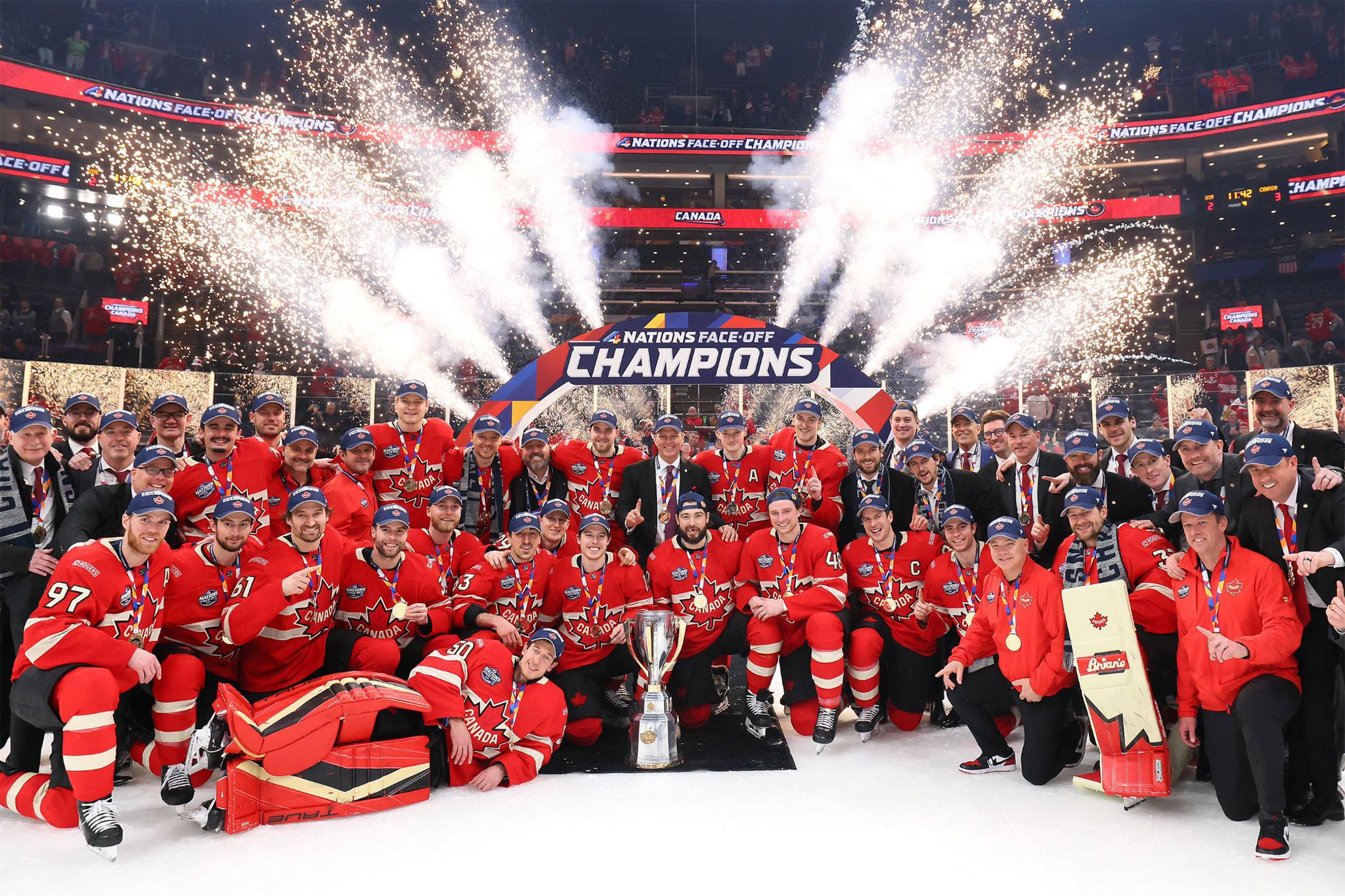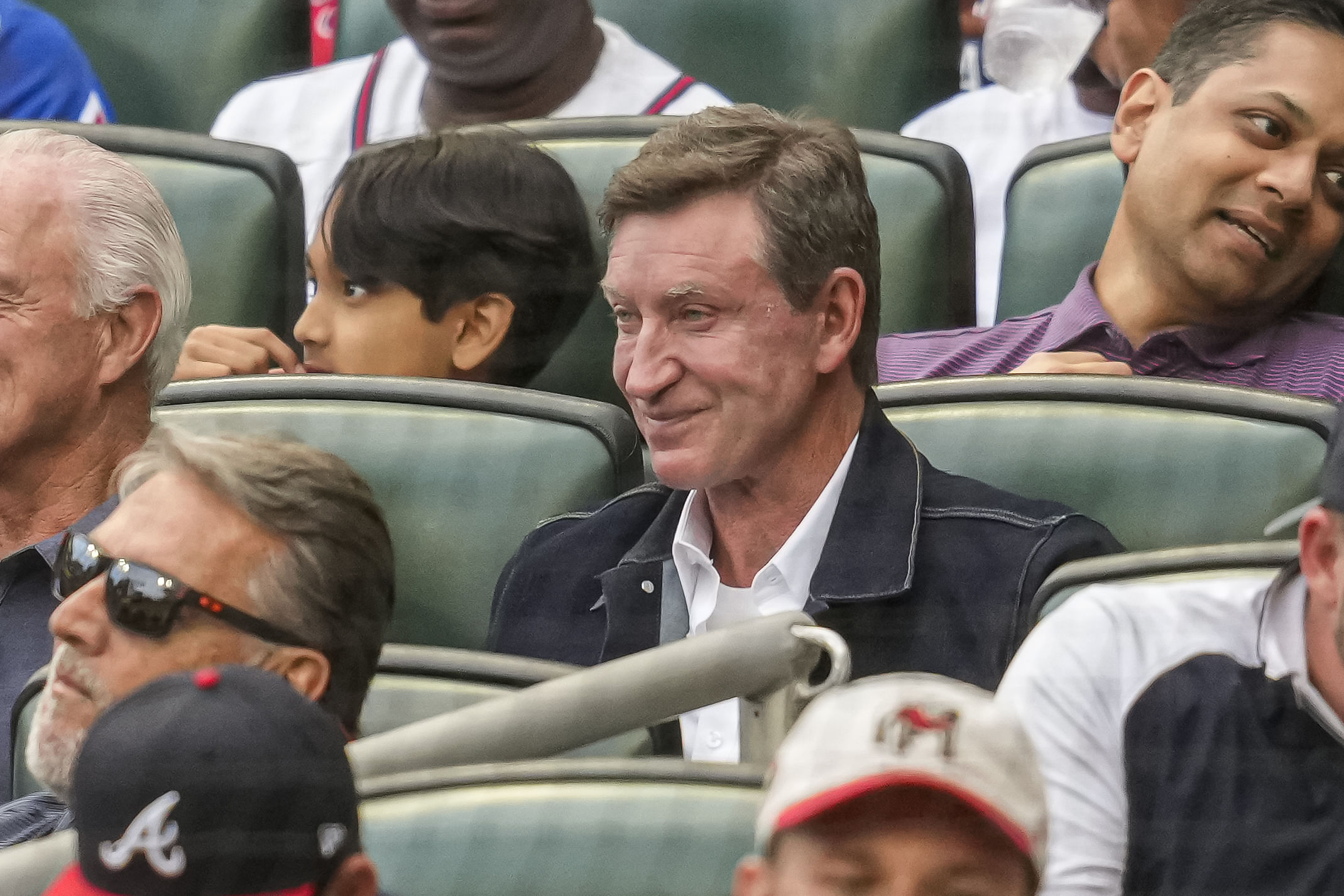Has the "Great One" drifted away from his homeland? Wayne Gretzky's legacy as a Canadian icon is being questioned amidst a swirl of political commentary and perceived detachment from his roots.
The hockey world, and indeed the broader Canadian public, have been abuzz with discussions surrounding Wayne Gretzky. The legendary figure, widely regarded as the greatest hockey player of all time, finds himself at the center of a complex narrative that extends far beyond the ice rink. While his on-ice achievements remain etched in the annals of sporting history, recent events and commentary have sparked a debate about his connection to Canada and his perceived allegiances. This has led to a wave of opinions across social media and within mainstream news outlets.
The discourse is multi-layered, touching on issues of citizenship, political alignment, and the evolving nature of national identity in a globalized world. Gretzky, now 63, was born in Brantford, Ontario, and his name is synonymous with Canadian hockey, he's been a symbol of national pride for decades. However, his life, particularly in recent years, has been intertwined with the United States, where he spent a significant portion of his professional career and currently resides. His marriage to American actress Janet Jones in 1988 further complicated matters. These factors have combined to fuel the current scrutiny of his relationship with Canada, causing some Canadians to question the strength of his ties to his homeland.
One of the key points of contention stems from Gretzky's involvement with the United States and his comments on political issues. This has led to concerns about his perceived reluctance to speak up for Canadian interests. This has sparked strong reactions from many Canadians, who believe that their sporting heroes should stand firm on the values of their country. They feel that his actions don't align with the country's values. Gretzky has maintained that he remains proud of his Canadian heritage, however, this hasn't completely quelled the criticism, and the discussion goes on.
Adding further complexity to the situation is Gretzky's dual citizenship, holding both Canadian and American passports. This, coupled with his long-standing residence in California, raises questions about his sense of belonging and his priorities. Some critics suggest that his choices and associations indicate a shift in allegiance, while others view his situation through the lens of a global citizen, with connections that extend beyond national borders. However, the fact remains that many Canadians view his actions through a nationalistic lens, feeling that he should actively promote their national interest.
The controversy surrounding Gretzky's citizenship status and his engagement with political issues has generated a wide range of opinions. Some people find the situation to be quite normal, while others consider it to be a betrayal of Canadian values. The varying reactions reflect the complexity of the issues at stake, which involve questions of national identity, political affiliations, and the shifting dynamics of global citizenship.
| Full Name | Wayne Douglas Gretzky |
| Date of Birth | January 26, 1961 |
| Place of Birth | Brantford, Ontario, Canada |
| Nationality | Canadian and American (dual citizen) |
| Spouse | Janet Jones (married 1988) |
| Children | 5 |
| Position | Centre |
| NHL Teams |
|
| Career Highlights |
|
| Awards and Honors |
|
Wayne Gretzky's career stats can be found here: Wayne Gretzky's career stats at the internet hockey database.
The discussion also touches upon Gretzky's involvement in the business world and his entrepreneurial ventures. This includes his ownership stake in the Toronto Argonauts of the Canadian Football League (CFL) alongside John Candy, as well as his various endorsement deals and business activities. The question of whether these commercial interests have influenced his public image and his relationship with Canada also comes into the picture.
Gretzky's name is also tied to the news about Canadian politics and how a new bill that could affect the ability of Canadian citizens living abroad to vote in elections. This has sparked discussions regarding the impact of Canadian citizens in the United States. Some of the 1,062,640 Canadians living in the United States alone could be influenced by the new bill.
The context of Gretzky's career choices and his life choices, including his relocation to Los Angeles, are crucial factors. As the next NHL season began, Gretzky found his place in Los Angeles and in a new Kings uniform, making it the next chapter in his career. The move marked a significant shift in his professional life. This move, alongside his marriage to an American and his subsequent embrace of American society, have contributed to the debate about his Canadian identity. The circumstances led to questioning of Gretzky's alignment.
The narrative surrounding Gretzky also highlights the power of sports to shape national identity and the expectations placed upon athletes. Gretzky, being a national hero, is expected by many to embody the values of Canada. They want him to support the country's interests and represent its ideals on the world stage. When he appears to fall short of these expectations, or when his actions are perceived to be out of sync with national sentiments, it triggers a sense of disappointment or even betrayal.
The awarding of the Order of Canada, the nation's highest civilian honor, to Gretzky in 2009 is an important aspect of this discussion. However, the fact that he initially failed to pick up the honor for 14 years, only doing so in a private ceremony, has been interpreted by some as further evidence of a disconnect between him and his homeland. The situation has created an impression that Gretzky has distanced himself from his roots, even though he has been recognized with the country's highest honors.
The events surrounding Gretzky's connection to the United States and his perceived reluctance to openly advocate for Canadian issues have also drawn attention. Some critics have highlighted his association with figures like Donald Trump, raising concerns about his political leanings and his priorities. The situation sparked controversy, with many Canadians feeling that Gretzky should take a more active role in supporting Canadian values. These concerns have led to discussions about the responsibilities of public figures and the interplay between sports, politics, and national identity.
Adding to the controversy is the incident where Gretzky entered the rink via the U.S. bench at an international hockey tournament, giving them a thumbs up. This gesture, though seemingly innocuous, was interpreted by some as a sign of support for the American team, leading to criticisms. The gesture was seen as a slight towards Canada, and it caused further strain on the already complex image that the hockey legend was facing. This further fuelled the ongoing debate about his loyalties and his connection to his homeland.
Gretzky's comments, or lack thereof, on significant Canadian issues have also been put under the microscope. The perception of him not speaking up for Canadian interests, especially when compared to other Canadian athletes or public figures, has sparked disappointment. Many Canadians feel that public figures should be vocal in their support for their country. This contrast in opinions highlights the complex expectations placed on those with high profiles and the differing views on the role of celebrities in society.
The case of Wayne Gretzky encapsulates the complexities of identity in a globalized world. It also reflects how sports, politics, and celebrity culture intersect. The fact that Gretzky has dual citizenship, coupled with his prolonged residence in the United States, highlights the evolving nature of national identity. It suggests that national identities are increasingly complex and intertwined with personal choices and affiliations.
In conclusion, the debate surrounding Wayne Gretzky's relationship with Canada reflects a larger conversation about identity, national pride, and the responsibilities of public figures in a rapidly changing world. It is a conversation that highlights the enduring power of sports to shape national narratives and the complex interplay between personal choices and the expectations of a nation. The discussion remains ongoing, with no easy answers, as the world continues to grapple with the ever-evolving nature of identity in the 21st century.


